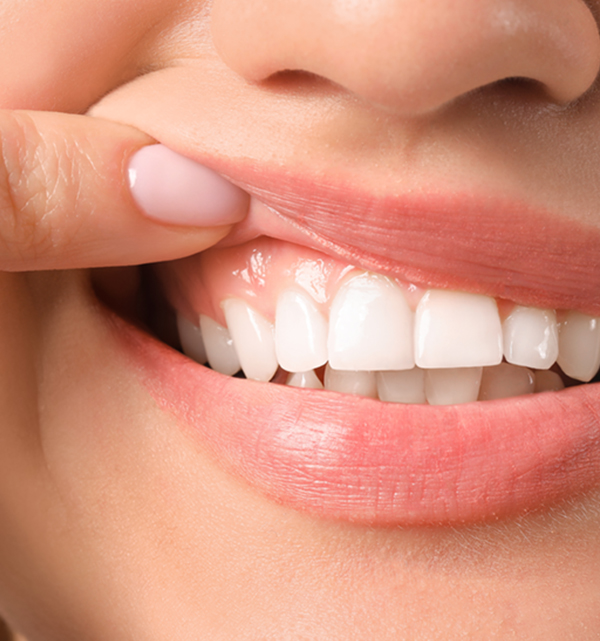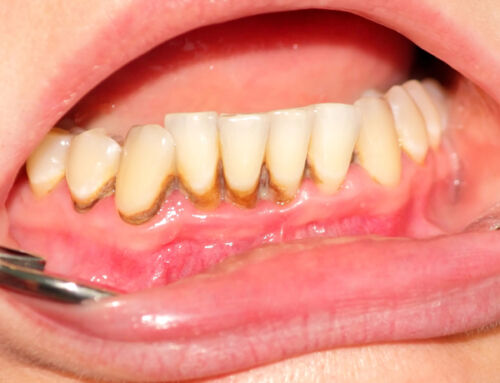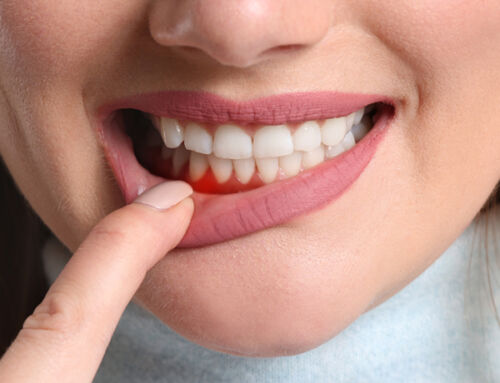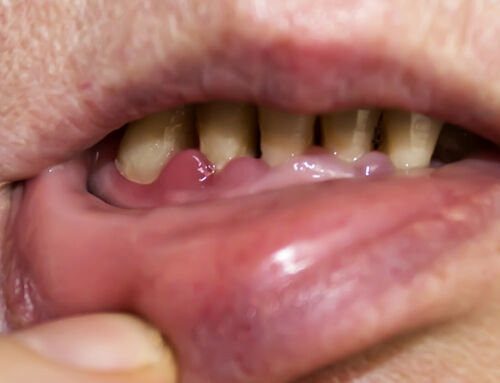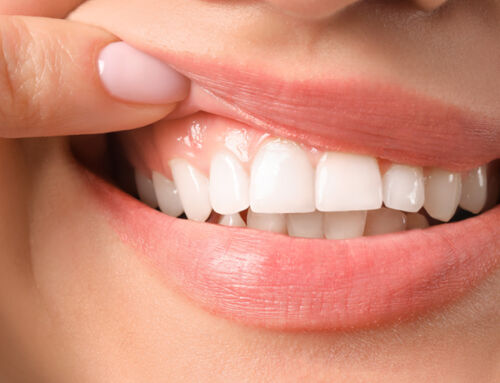Aside from the teeth, the gums play a crucial role in your oral health. Keeping it in good shape with proper hygiene care and maintenance can help enhance your overall health and improve your smile. Some of the best gum care practices include proper brushing, flossing, and rinsing with a prescription mouthwash.
If the gums are not properly taken care of, dental diseases such as gum and periodontal disease may occur. But how do you know when to be alarmed? Several telltale signs point to possible gum disease. Read along to learn more about what your gums are telling you…
What is gum disease?
Gum disease or gingivitis is an infection of the gums caused by irritants such as plaque, tartar, food debris, and bacteria. The most common cause of gum disease is poor oral hygiene which leads to plaque build-up. This irritates the gums resulting in redness and swelling.
When caught and treated early, gingivitis can be reversed. This is usually done by getting professional teeth cleaning and reinforcing your at-home hygiene routine. Your dentist may also prescribe toothpaste or mouthwash specifically for gum health maintenance.
However, if left untreated, progressive gum disease may lead to irreversible periodontal disease. This is an infection of the bone and tissues surrounding the tooth. Advanced periodontal disease is the leading cause of tooth loss.
Avoid these dental health concerns by taking note of the usual signs of gum disease. Here’s what you should know about them…
If you have red and inflamed gums…
Red and inflamed gums are a clear-as-day sign of gingivitis. It usually means that irritants, usually plaque, are present underneath the gums. Bacteria in plaque release enzymes that break down and erode gum tissues.
For gingivitis caused by plaque, it is recommended that you get your teeth professionally cleaned so your dentist can remove plaque stuck beneath the gums. Also, improve your brushing and flossing habits to prevent tartar build-up.
But if the teeth are clean, inflamed gums may be a sign of viral or bacterial infection. This may be accompanied by high-grade fever, oral lesions, and a visibly affected overall health.
If you have receding gums…
Another sign of gingivitis is when the gums pull away from the teeth. When plaque and tartar remain on the tooth, the gums will eventually recede and the tooth will look longer. This is also a sign of a more advanced gum disease. The gums do not have sufficient bone support to keep them in place, so they tend to pull away. If this is not managed soon, further bone destruction may occur to cause tooth loss.
Receding gums may also occur if you brush your teeth aggressively or if you are a frequent smoker.
Unfortunately, once they recede, gum tissues do not grow back on their own. So, it is important that you keep your gums in good shape. Otherwise, you may need to consider gum grafts to improve your smile.
If you have dark-coloured gums…
Dark-coloured gums are commonly caused by three things: melanin, smoking, and severe gum and periodontal disease. Dark-skinned races normally have darker gums because they have more melanin. Meanwhile, smokers also tend to have darker-pigmented gums because nicotine triggers melanin-producing cells of the gums to produce more pigmentation.
But, for patients with advanced gum disease, darker gums may mean severe bleeding or rapid bacteria growth in the mouth due to poor oral hygiene. This causes a layer of dead tissues to form on the gums, staining them a darker colour.
If you have puffy and bleeding gums…
Puffy gums are also a common sign of gingivitis. It is a usual reaction of the gum tissues as bacteria accumulates underneath and causes irritation. Puffy gums also tend to bleed easily even with the slightest trigger.
Oral prophylaxis and dental hygiene maintenance with brushing and flossing should help your gums return to normal. Medicated mouthwash with chlorhexidine can also help wash away bacteria to improve gum health.
Aside from gingivitis, swollen and bleeding gums are common in pregnant women due to an imbalance in their hormones. It may also occur in patients with persistent viral infection.
Ultimately, any sign that veers away from the normal form and appearance of the gums should signal a trip to the dentist. The sooner your dentist can check your gums and identify the problem, the earlier they can provide the proper treatment to restore it to proper health.
Gum Disease Prevention
At Chinook Dental Group, preventive dentistry is always the goal in which oral health is maintained and continuously improved. This ensures that dental diseases are avoided or managed before they get worse.
Here are some oral health care tips that are beneficial in gum disease prevention:
- Brush properly
Brushing should be done at least twice a day using a fluoride-rich toothpaste. Use a soft-bristled toothbrush to gently clean the teeth without damage to the gums.
- Do not forget to floss
Flossing removes plaque and food particles beneath the gumline. This effectively reduces signs of gingivitis such as red, sore, and bleeding gums. Floss after brushing your teeth to achieve complete mouth clean.
- Consider medicated mouthwash
Chlorhexidine is the gold-standard ingredient in mouthwash for anti-plaque and gum care. It adheres to soft and hard tissues of the mouth and releases its potent gingivitis agents to maintain optimal gum and periodontal health. This can be used as a maintenance mouthwash or as medication for those already suffering from gingivitis.
- Routine teeth cleaning
While good at-home hygiene care is important to achieving excellent gum health, not all areas of the mouth are properly cleaned with just toothbrushing and flossing. With professional teeth cleaning, your dentist can scrape soft and hard plaque and stains. This is especially true in and useful for hard-to-reach areas such as below the gums and at the far end of your mouth where your wisdom teeth are.
Gum and Periodontal Health at Chinook Dental Group
The gums should never be neglected when it comes to your oral health. It is just as important in keeping your smile healthy and beautiful. Discover the most effective gum care with our dental team at Chinook Dental Group. Call today to schedule your comprehensive dental check-up!

